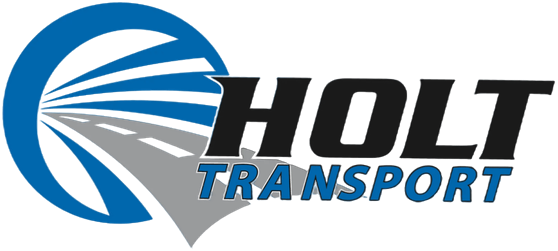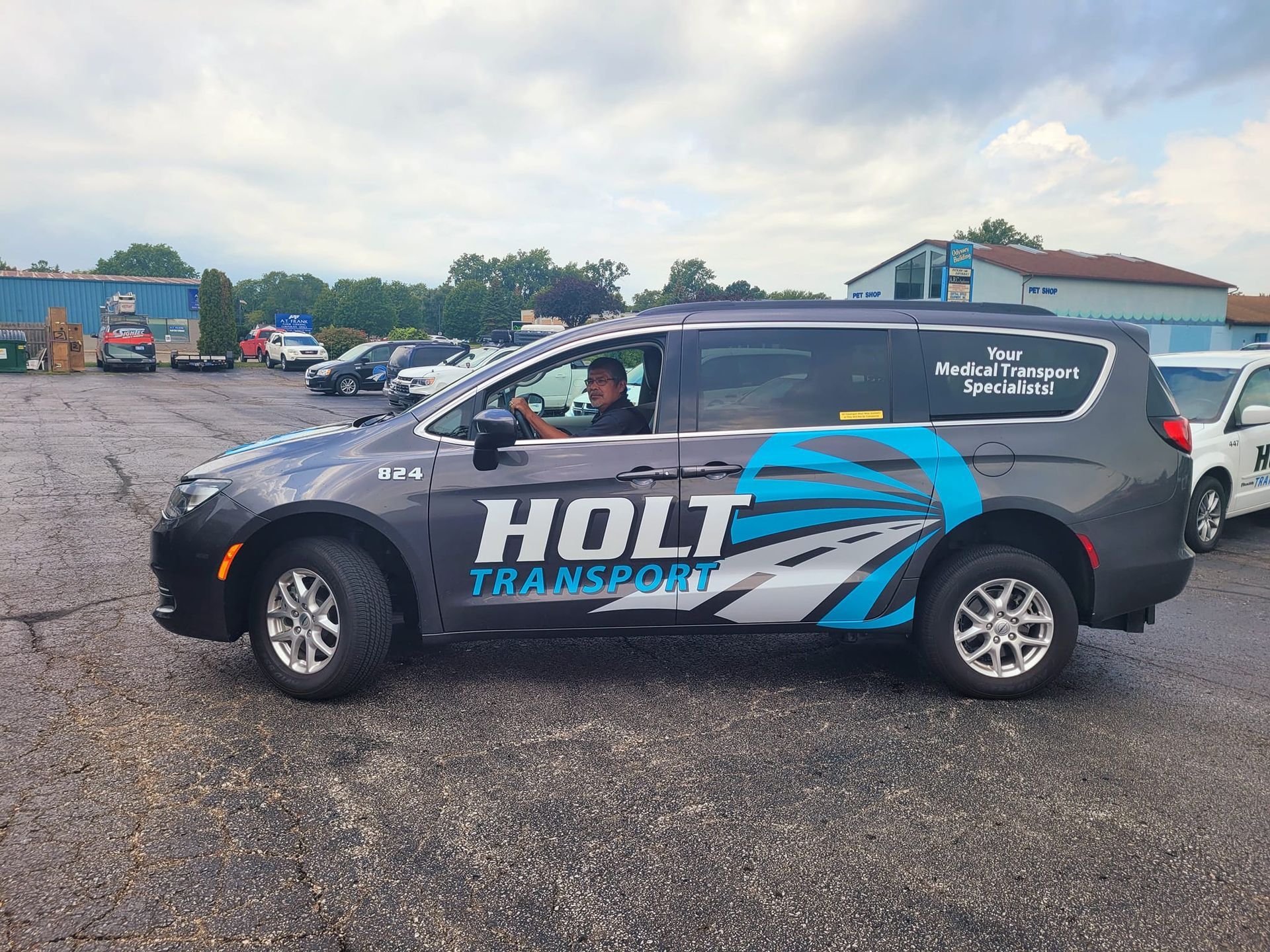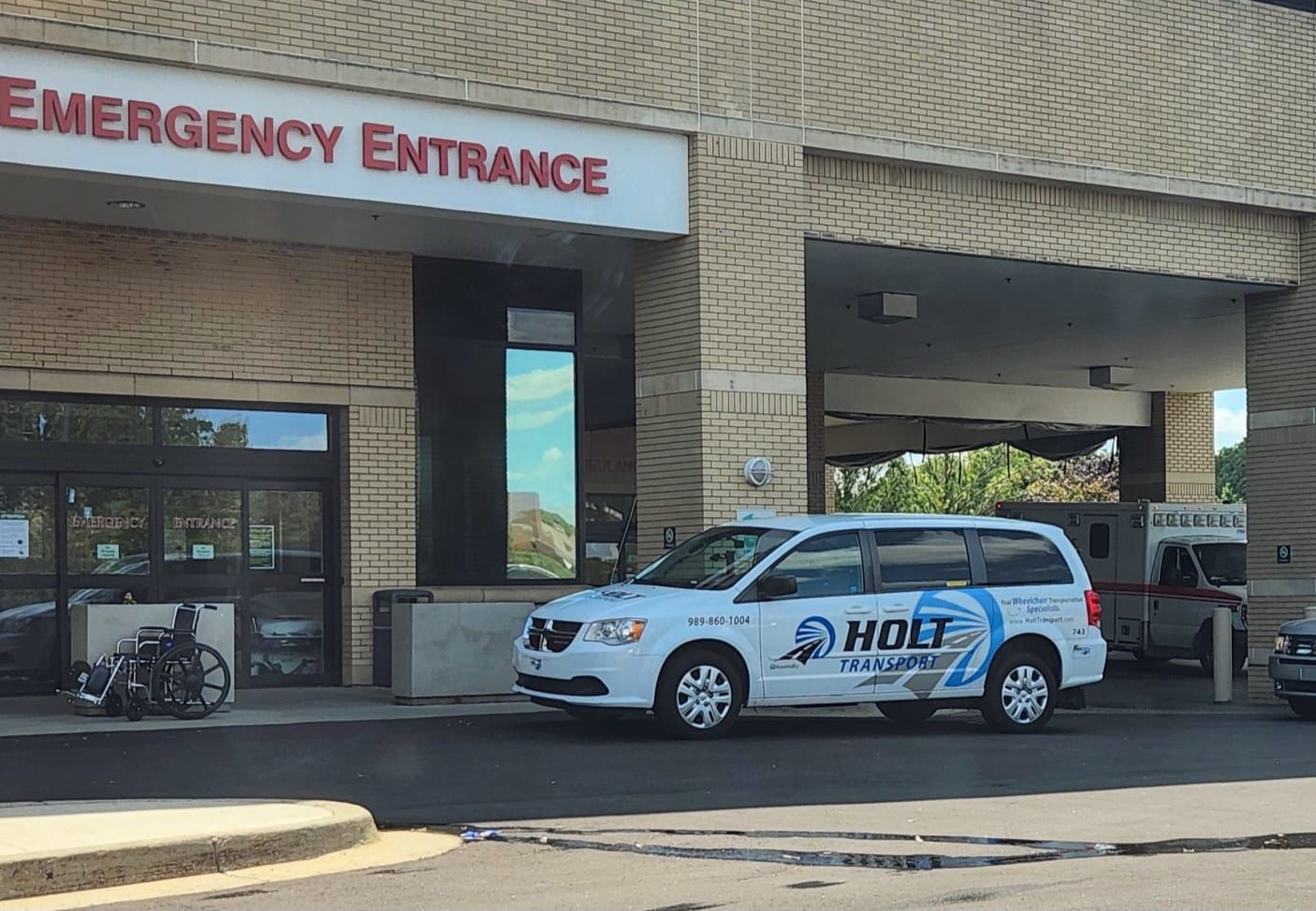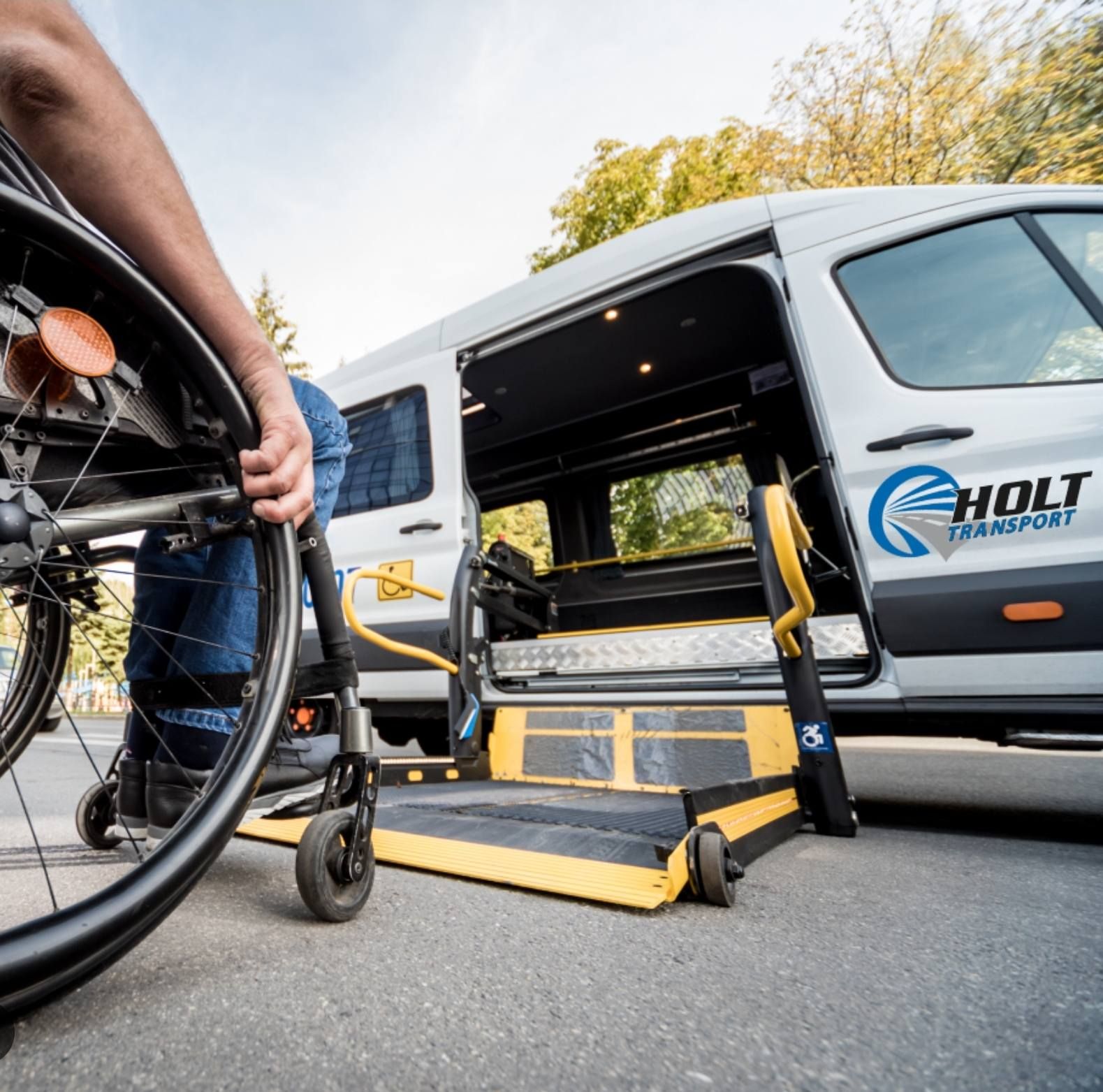Medical Transportation Resources
Learn how to choose the best medical transportation service in Midland. Get expert guidance on what to look for in quality transport providers and tips for booking safe, reliable rides.
Discover how to find reliable ambulatory transport services in Bay City. Learn what to expect from quality medical transportation and get tips for choosing the right service for your needs.
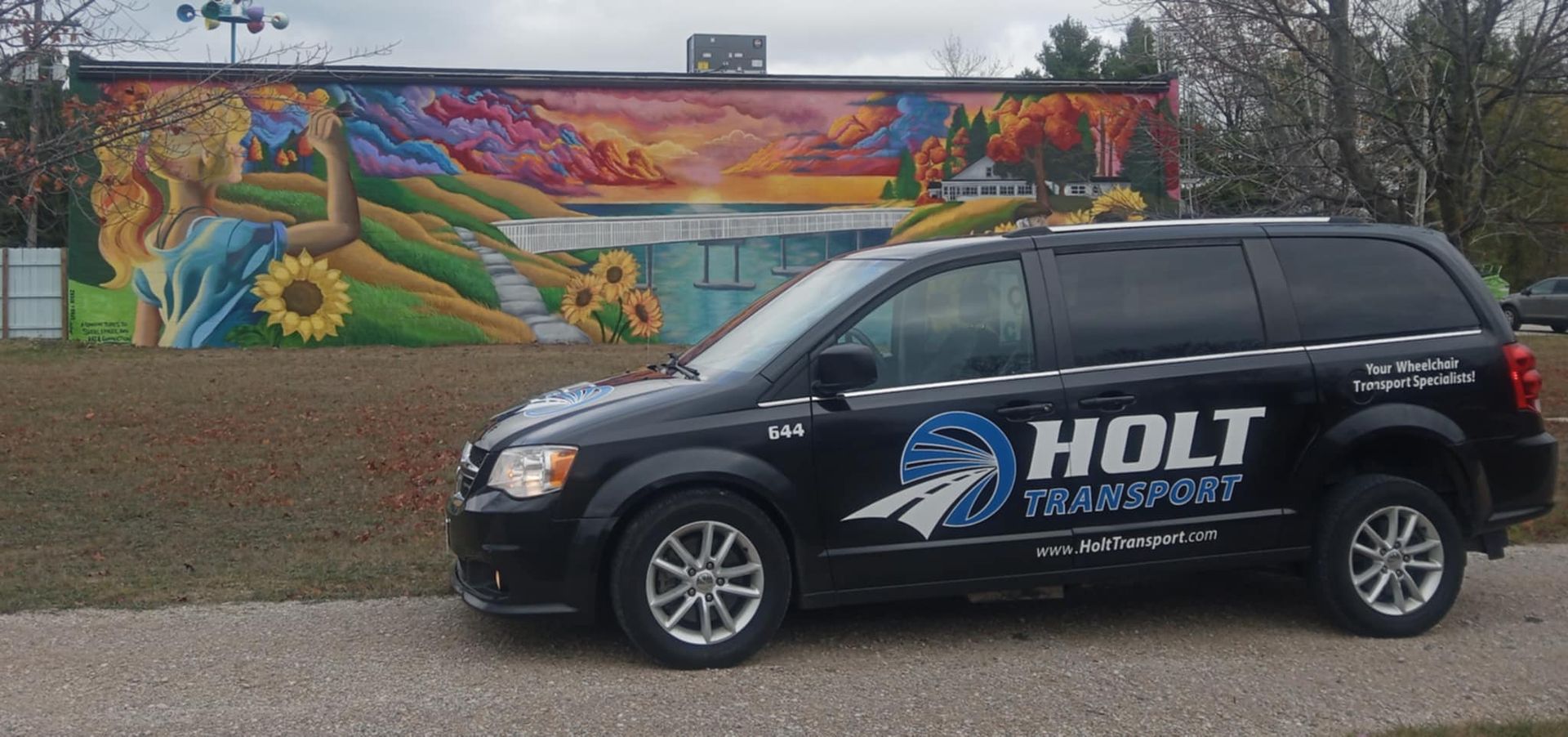
This article is intended to provide a brief overview of the primary options for Non-Emergency Medical Transportation and the quality of service that patients consider most important to enhance their overall healthcare. Let’s look at the options: 1 – Ambulance Transportation Ambulance transportation is usually reserved for emergency medical situations. However, ambulance transportation can be used in non-emergency medical conditions where the patient’s health is concerned. Transport is deemed medically necessary to provide support for the patient. These means of transport are typically from hospital to hospital, hospital to home, nursing home, or hospital to outpatient services. The circumstances for the necessity of these transports vary widely, dependent upon the individual patient’s medical condition. Due to the high cost of ambulance transportation, it must meet specific guidelines to be considered medically necessary to be covered under Medicare, Medicaid, and most health insurance policies. Before using an ambulance service for non-emergency medical transportation, you should check with your insurance provider to see if you are covered for the service. Otherwise, you may be liable to pay the ambulance company hundreds of dollars out of your pocket. 2 – Non-Emergency Medical Transportation Companies Non-Emergency Medical Transportation (NEMT) companies were established to fill a unique void in medical care by enabling patients who cannot drive or do not have access to transportation to get to their appointments. These companies provide lower-cost services than ambulance companies and a safer, cleaner, more comfortable ride than private taxi services or public transportation. NEMT companies are also trained and equipped to accommodate special needs for physically disabled persons, including wheelchairs, walkers, and service animals. Our NEMT drivers are familiar with the locations and physical layouts of all the major medical facilities in our area. Thus, we are uniquely qualified to go the extra mile to assist passengers with door-through-door service to and from the vehicle. What is meant by the door through door service? If a client was mobility challenged or anxious about where to check-in for a first-time appointment, our drivers could assist the client into the building, including holding doors open and assistance with elevators or stairs if requested. A reputable, customer-focused NEMT company employs highly skilled drivers with these credentials: Defensive Driver’s Training Course HIPAA Regulation Training Assisting Persons with Disabilities Training Emergency, Procedures, and Bloodborne Pathogens Training Fraud, Waste, and Abuse Training Most NEMT companies receive their work from large transportation brokerage firms that distribute it to qualified NEMT providers. NEMT companies must adhere to high standards, certifications, inspections, and training to be considered a preferred transportation provider. NEMT companies utilize sophisticated dispatching software and scheduling programs that allow them to provide reliable, on-time service. NEMT services can be covered under Medicare, Medicaid, and many health insurance programs with prior authorization. 3 – Private Taxi Transportation Most patients who require non-emergency medical transportation are in specific distress due to their medical condition. These patients deserve clean, safe, comfortable rides from individuals who are professional, polite, compassionate, and possess the experience and understanding of their situation. Most private taxi drivers have little or no training in treating or accommodating persons with medical conditions or physical disabilities. Their primary concern is to get the passenger to their destination as quickly as possible to make money. It is rare to see a private taxi driver exit his vehicle, much less help through the front door to the facility check-in area. This attitude is often an unpleasant, unreliable experience that can cause more stress for the patient. Under most circumstances, private taxi companies do not bill Medicare, Medicaid, or health insurance providers. Therefore, the patient must pay the transportation fee upon delivery and handle the reimbursement request. 4 – Public Transit Public transportation for persons with medical conditions, behavioral problems, or physical disabilities can be an inconvenient, inefficient, and stressful mode of transportation. The patient has to find a way to the bus terminal and wait for the bus to arrive, often in inclement weather. The patient is dropped off at the bus terminal closest to their destination but rarely within safe walking distance. Seniors and people with disabilities are especially susceptible to falls and boarding a bus can be a daunting and hazardous task. As with private taxi drivers, few public bus drivers have adequate training in adequately accommodating the needs of people in poor health or with disabilities. In fact, due to the fixed-route nature of public transportation, the bus driver’s destination is unknown. They have no way of knowing if the passenger has a health issue unless they show physical symptoms. Therefore, the driver does not indicate that the patient might require special care and attention. And even if they did, the driver is under no obligation to assist the patient in any way. Few public transit providers bill Medicaid and Medicare due to the low reimbursement rate and the ability to meet the complex regulations. While public transportation may be the most affordable option for persons without health insurance, the experience can exacerbate their condition, hinder their recovery, or endanger their health. Conclusion When determining your needs for non-emergency medical transportation, we recommend you consider the points we’ve mentioned in this article. There are many other factors to think about that we didn’t cover here. So, depending on your circumstances, you should consult with your health insurance provider, your healthcare provider, and your family to determine which method will provide you with the services you need. About Holt Transport Wheelchair, Ambulatory, Gurney Alternative Door-To-Door Transportation We are the go-to transportation provider for healthcare organizations, doctor’s offices, schools, public transportation services, and medical facilities across Michigan, trusted by major NEMT management companies nationwide. Our commitment to providing top-notch transportation services for mobility-challenged individuals has led us to expand our fleet past 40 vehicles and drivers since our start in 2010.Our team is trained to ensure safe transportation for clients in wheelchairs, and we strive to accommodate any transportation need for single or multiple passengers, including those with service animals. All our wheelchair vans feature 24″ bariatric wheelchairs when required. We recently added the Broda Synthesis WC19 Transport Chair – a powerful, revolutionary device that has revolutionized non-emergency medical transport for gurney alternative transport. We take pride in the state-of-the-art technology systems we use to dispatch our vehicles and plan our routes, reducing wait times and ensuring reliable service. Additionally, our commercial insurance, MDOT certification, and state inspection guarantee we maintain our exemplary service. Our vehicles are all newer models, smoke-free, and well-maintained to offer maximum comfort during transit. Choose Holt Transport for safe, professional, and efficient transportation services, every time! Contact us at info@holttransport.com or call (989)860-1004, Monday-Friday 7:00 am – 5:00 pm.
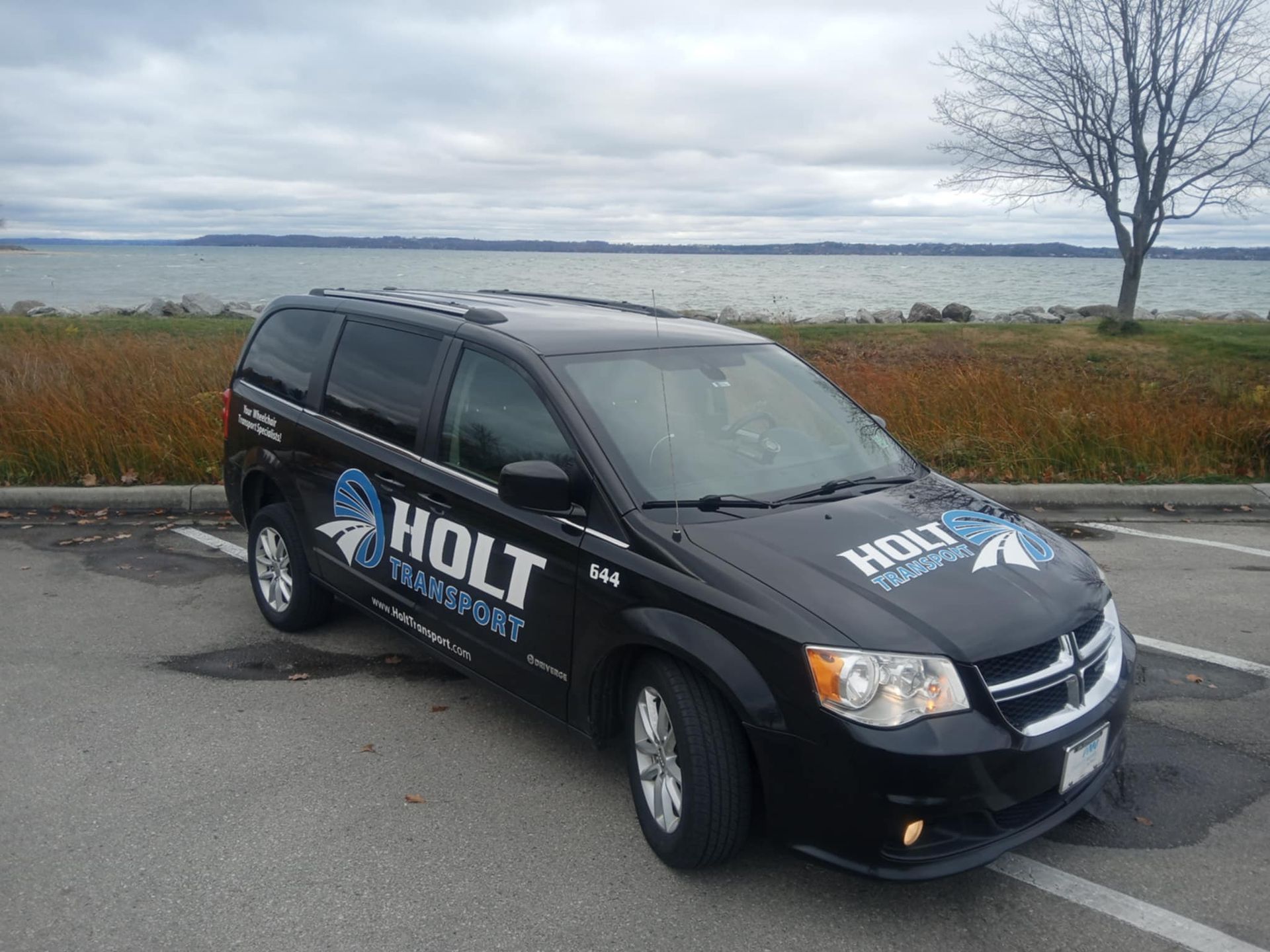
1-Door-to-door transportation Holt transport is unique in that we offer true door-to-door transportation for our clients. Our compassionate drivers will meet you at your door for pickup, take you to your medical appointment and help you back to your door when you return home. 2- Arrive On time Holt Transport provides safe and reliable transportation services for physically challenged individuals of any age who use a wheelchair or powerchair. We provide you with non-emergency medical transportation to your Doctor, Rehabilitation Therapy, Kidney Dialysis, Chemotherapy treatment, Eye and Ear exams as well as Outpatient Surgical Procedures; we also offer rides home from the hospital after Surgery! 3-Available anytime weekdays, 7am – 5pm Our drivers will go anywhere from 7 am – 5 pm every day to your chosen destinations. Holt may be able to accommodate other times with advanced request depending on availability. We make sure that you get where you are supposed to be in time for your appointments. 4-Modern, clean wheelchair accessible vans Our wheelchair accessible vans are equipped with an ADA approved commercial lift. Once loaded, your chair is secured to the van floor using our Q-Straint tie down system which keeps it from rolling while in motion. Our vehicles are Commercially Insured, State Inspected and MDOT or LARA Certified, as applicable. 5- Safe, professional drivers Drivers are ALL trained and certified in courses such as Defensive Driving, Assisting Passengers with Disabilities, Wheelchair Securement, Emergency Situations Procedures, Bloodborne Pathogens Training and Fraud Waste Abuse prevention. Holt Transportation prides itself on discretion when it comes to health-related information. 6-COVID-19 Transportation Our safety conscience drivers can provide transportation even with a COVID-19 positive test result. If you need a ride to get tested, call Holt Transport. 7-Trusted by medical facilities, hospitals and large insurance companies Holt works with local and national medical facilities, brokers, and insurance companies who rely on us to transport their clients daily for doctor appointments. Who do we provide transportation services for? We provide door-to-door non emergency medical transportation for people with mobility problems who may need a ride to the store, doctor appointments, therapy or any personal or medical destination. We have provided rides for hundreds (maybe thousands) of reasons over the past 12 years! Give us a try, you will find out why we transport hundreds of patients each week! How do you schedule a ride? Please contact us at Holt Transport, (989) 860-1004 or by email info@holttransport.com. You can also request a quote online by clicking on this link.
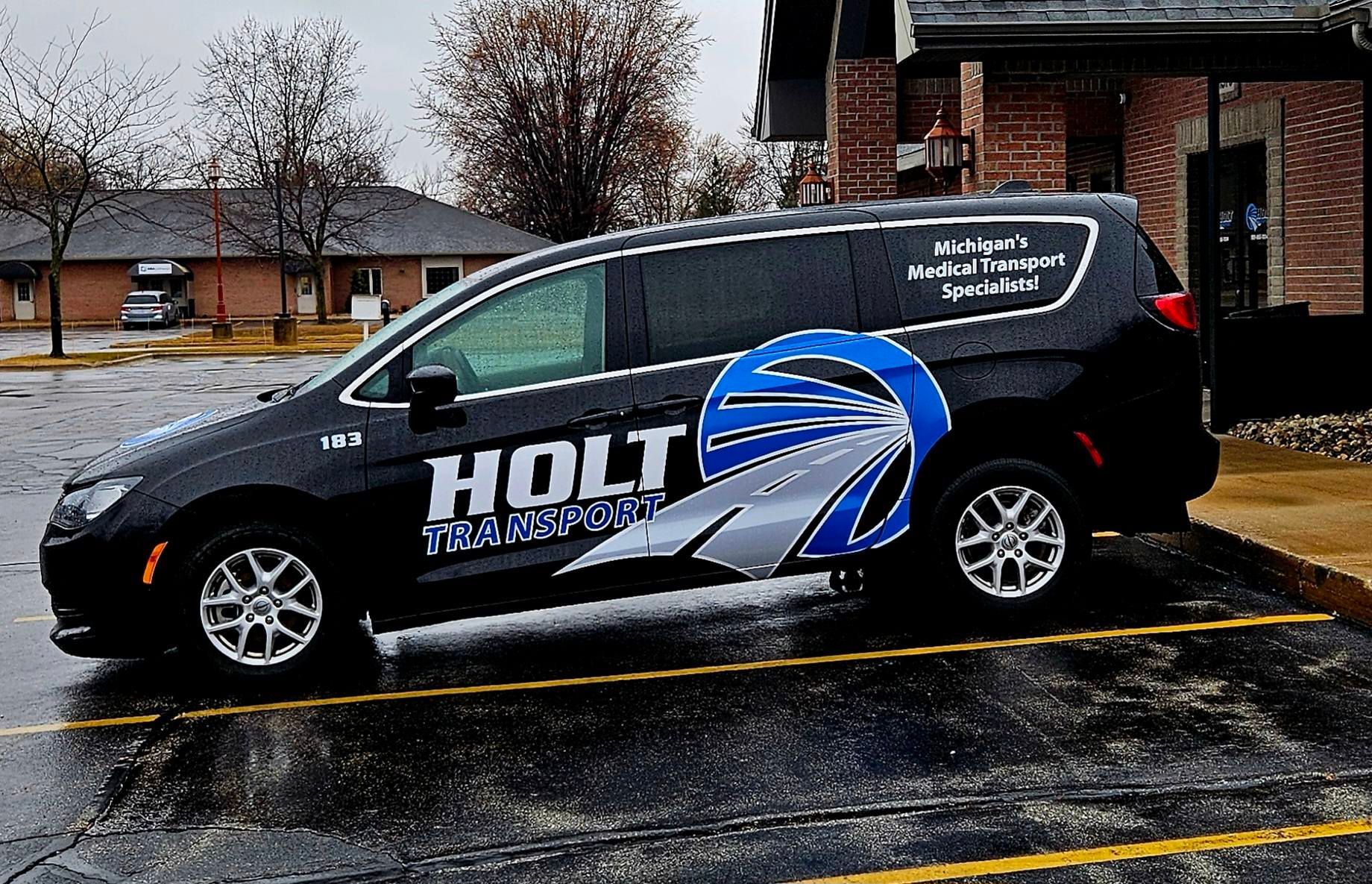
National Average for No Shows Patient no shows are a frustrating and costly problem that healthcare providers face on a daily basis. According to industry data, the national average for no shows is as high as 30%. There are various reasons why patients miss appointments, from forgetting to scheduling conflicts. However, one often overlooked factor that contributes to missed appointments is transportation. This blog explores the impact that transportation has on patients no shows and the steps healthcare providers can take to reduce it. As the average American lifespan increases, so does the number of mobility-challenged patients. Whether they’re in a wheelchair or need assistance getting around, transportation is a significant issue that affects their ability to make and keep their appointments. The lack of transportation can be attributed to various reasons, from the high cost of public transportation to limited access to transportation. Patients may have to rely on family members or friends that may not be available, especially during working hours. What Are No Shows Costing Your Medical Practice? The cost of patient no-shows can be substantial for healthcare providers, and it’s more than just a financial loss. It also affects the overall quality of care provided to their patients. Healthcare providers can’t help if patients don’t show up for their appointments, which leads to delays in treatment, missed diagnoses, and prolonged illness. The ripple effect of these missed appointments can be damaging to both the provider and the patient. Arranging Transportation Can Significantly Reduce No Show Rates One potential solution to this problem is offering transportation assistance to mobility-challenged patients. Healthcare providers can partner with transportation companies or create their transportation programs to ensure their patients arrive at their appointments on time. Some hospitals have already started offering free transportation services to patients, such as shuttle buses or ride-sharing services like Uber and Lyft. While these are potential solutions, partnering with a transportation provider like Holt Transport, who specializes in non-emergency medical transportation ensures that your patient's needs are fully met. These programs can significantly decrease the number of missed appointments and improve the overall quality of care while reducing the risk of regular hospital readmissions. Adding Reminder Follow Up Calls and Messaging Healthcare providers can also implement reminder systems to remind patients of their upcoming appointments. Using a variety of communication methods such as phone calls, emails, and SMS, patients can efficiently manage their schedules, and healthcare providers can reduce the number of no-shows. When patients receive reminders before their appointments, they are more likely to remember the date and time, and, therefore, less likely to miss their scheduled visits. The healthcare industry is a challenging field, and the issue of patient no-shows is an unwelcome headache for healthcare providers. While there are various reasons why patients may miss appointments, transportation issues play a significant role. By offering transportation assistance and implementing reminder systems, healthcare providers can significantly reduce the number of no-shows and thereby improve the quality of care for their patients. Taking these practical steps is critical for providers who want to make a measurable impact on their bottom line while improving patient care. Want To Reduce No Show Rates? Introducing Holt Transport – the preferred provider of non-emergency, wheelchair transport services! With us, you can trust that every trip is safe, reliable and ADA-compliant. We’re committed to providing prompt door-to-door service with competitive rates so that your patients travel in ease and comfort. Our Wheelchair accessible vans feature Commercial Lifts approved by the ADA to load wheelchairs quickly and securely. Our Q Straint tie-down system ensures wheelchairs and powerchairs stay in place during transit. Plus, our experienced drivers ensure a pleasant experience while navigating Michigan roads – giving your patients the freedom and convenience they desire. Holt Transport also provides transportation services specific to healthcare providers – including rides to doctors’ appointments, rehabilitation therapy sessions, chemical treatments, outpatient surgeries, as well as return trips from the hospital after surgical procedures. Give your patients the care they deserve – with Holt Transport!
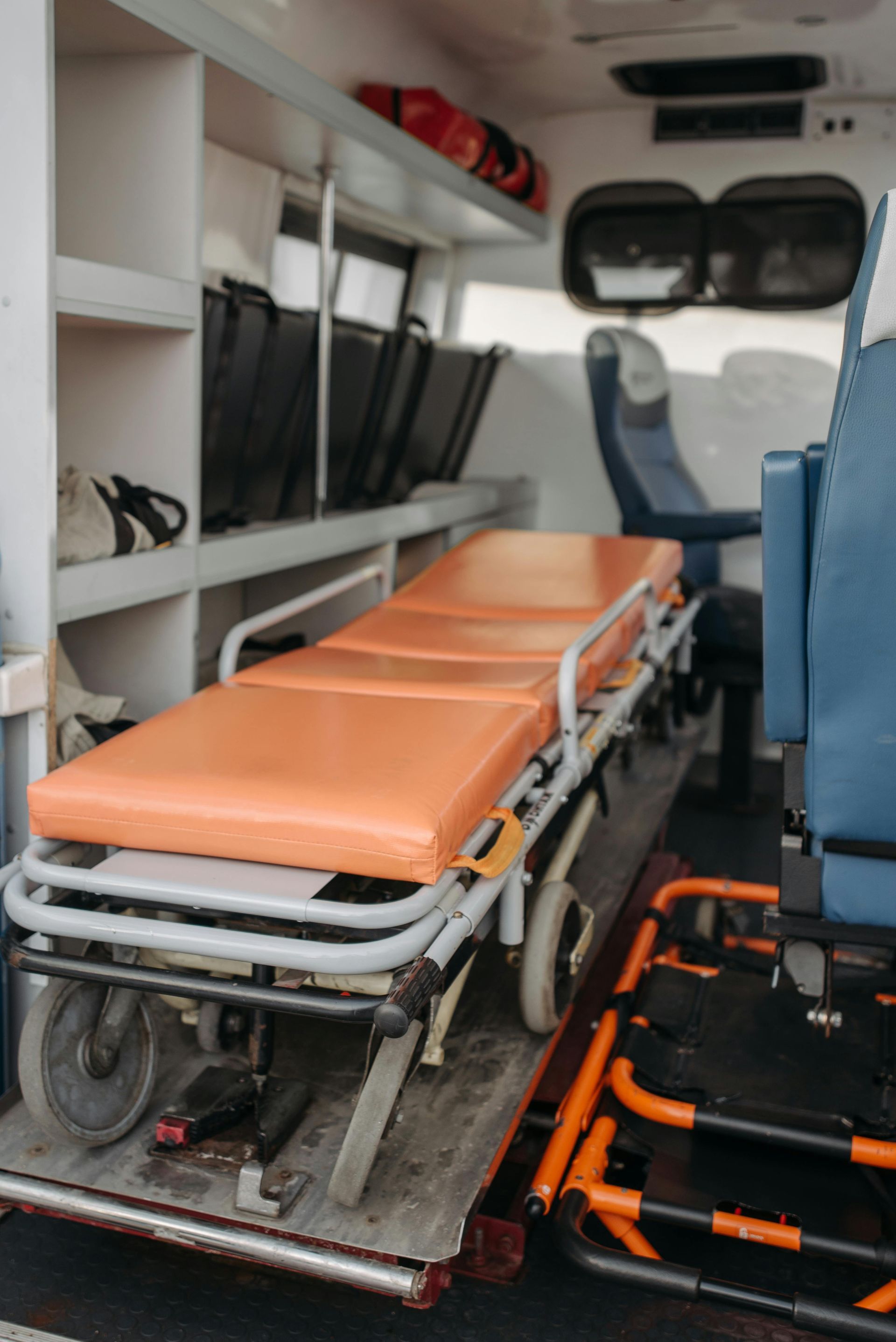
Do you need to transport a patient who is too sick or injured to walk but isn’t facing an emergency? While stretchers and gurneys are commonly used for patient transportation, there are alternative solutions that may be better suited for the task. In this blog post, we’ll explore some of these alternatives and provide information about why they might be more appropriate than traditional stretcher or gurney transportation in certain cases. Overview of Non-Emergency Stretcher Transportation Non-emergency stretcher transportation is a vital service that allows patients to be transported safely and comfortably between medical facilities or from their homes to medical appointments. Unlike emergency medical transportation, non-emergency transport is for patients who do not require immediate medical attention. This service is particularly useful for patients who are disabled, have mobility issues, or need to travel a long distance. Non-emergency stretcher vehicles are well-equipped to transport patients who cannot sit in a regular car or public transport. Highly trained medical personnel are always on hand to monitor patients and ensure their safety during transport. With the help of non-emergency stretcher transportation, patients can receive the medical care they need without having to worry about the stress of transportation. Types of Non-Emergency Stretcher Options – Stretchers vs. Gurneys When it comes to non-emergency medical transportation, there are a variety of stretcher options available. Two common choices are stretchers and gurneys. Stretchers are typically used for patients who can sit up or move themselves onto the stretcher, whereas gurneys are designed for patients who are unable to move and require more support. Both options come with a range of features and can be tailored to suit the patient’s needs. When choosing between stretchers and gurneys, it’s important to consider factors such as the patient’s mobility, the type of medical equipment needed, and the transportation method. By carefully assessing these factors, healthcare providers can ensure that patients receive safe and comfortable non-emergency medical transportation. Pros and Cons of Using a Stretcher vs. Gurney for Non-Emergency Transfers For non-emergency transfers, healthcare providers have a choice between stretchers and gurneys. Stretchers, also known as transport chairs, are typically smaller and more compact, while gurneys are larger and heavier. Each option has its unique advantages and disadvantages. Pros and Cons of Using a Stretcher for Non-Emergency Transfers Pros: Mobility : Stretchers are typically smaller and lighter, making them more maneuverable in tight spaces. Storage: They require less storage space compared to gurneys. Ease of Use: Patients who can sit up or move themselves can easily transition onto a stretcher. Cons: Comfort: They might be less comfortable than gurneys, especially for patients who need to lie flat or for longer journeys. Capacity: Stretchers may not have the capacity to hold larger patients or those with specific medical equipment needs. Pros and Cons of Using a Gurney for Non-Emergency Transfers Pros: Comfort: Gurneys are designed to be more comfortable for patients, especially during long transfers and for those who need to remain in a lying position. Support: They offer more support for patients who are unable to move. Cons: Size: Gurneys are larger and heavier, making them less maneuverable and requiring more storage space. Transfers: They are more difficult to use for patient transfers, especially for those who can move independently. Considerations When Choosing Between Stretchers and Gurneys for Non-Emergency Transfers When selecting between stretchers and gurneys for non-emergency medical transportation, several key factors should be considered. 1. Patient’s Condition: The most important consideration is the patient’s physical state. For patients who can sit up or shift themselves, a stretcher might be a suitable choice. However, for patients unable to move or those requiring lying flat, a gurney is typically more suitable due to its greater support and comfort features. 2. Transport Situation: The specific transfer scenario also plays a vital role in the decision-making process. For routine medical appointments or short-distance transfers, a stretcher’s mobility and ease of use can be advantageous. However, for long-distance transfers or patients with complex medical equipment, a gurney’s larger size and enhanced comfort features may be more appropriate. 3. Storage and Maneuverability: If storage or maneuvering space is a concern, the smaller and lighter stretcher is often a better choice. Gurneys, while offering greater comfort and support, are larger and heavier, requiring more storage space and making navigation in tight spaces more challenging. 4. Cost: The cost could be a decisive factor as well. Gurneys are typically more expensive than stretchers due to their enhanced comfort and support features. Therefore, budget constraints may influence the choice between a stretcher and a gurney. The Benefits of Using a Professional Trained in Non-Emergency Transfers Utilizing professionals trained in non-emergency transfers can significantly enhance the patient’s comfort, safety, and overall experience. 1. Expertise: Professionals are equipped with the necessary knowledge and skills to safely handle and transport patients. They understand how to navigate different routes and environments, ensuring minimal discomfort for the patient. 2. Safety: Trained professionals prioritize patient safety, using the appropriate equipment and techniques to prevent falls or injuries during transfer. It is especially crucial for patients with disabilities or mobility issues. 3. Patient Comfort: A smooth and comfortable journey can ease patient anxiety, making the trip less stressful. Trained professionals know how to manage patient comfort effectively, whether it’s adjusting the patient’s position, controlling the temperature inside the vehicle, or providing reassurance during the journey. 4. Efficiency: Utilizing a professional can result in efficient and timely transfers, reducing delays in patient appointments or treatments. It can contribute to better patient outcomes and increased satisfaction. 5. Compliance with Regulations: Professionals are familiar with healthcare regulations and standards, ensuring compliance during transport. It includes patient privacy and rights, infection control measures, and safe handling procedures. In conclusion, using a professional trained in non-emergency transfers can contribute to a higher quality of care and a more positive patient experience.

When you or a family member requires medical transportation services, the company you choose can make all the difference. It is essential to find a service that provides efficient and reliable transportation at an affordable price and one that makes safety and customer comfort their top priorities. With this guide, we’ll provide some tips on what qualities to look for when choosing a medical transportation provider so that you can be confident in your selection. From avoiding hidden costs to understanding which certifications your carrier should have, use these points to ensure the best possible experience whether it’s just around town or far away! 1. Professionalism
A key quality to seek out in a medical transportation company is professionalism. Professionalism is evident in all aspects of a business, from how employees interact with clients to the punctuality and reliability of their services.
It is crucial to find a company that prioritizes customer service, providing courteous and respectful interactions at all times. Furthermore, their approach to appointment scheduling should be organized and efficient, demonstrating respect for your time and convenience.
A professional medical transport service will prioritize your needs and ensure your experience is as comfortable and stress-free as possible.
2. Safety Safety is of paramount importance in medical transportation. Before choosing a company, ensure that they maintain secure, well-maintained vehicles equipped with safety equipment and are well-maintained.
Companies with reliable vehicles minimize the risk of breakdowns or accidents, ensuring a smooth and safe journey for patients. Additionally, the company’s drivers should be comprehensively trained in defensive driving techniques and emergency first aid measures.
They should be friendly, professional and capable of handling patients of different ages and suffering from chronic medical conditions.
3. Reliability
Reliability is another crucial factor to consider when choosing a medical transportation company. It involves the company’s ability to consistently provide timely and dependable services. They should have a track record of arriving on time for pickups and drop-offs, respecting the patient’s schedules and commitments.
Any delay in transportation can lead to stress and potential health risks for patients. Ensure the company has a reliable fleet and sufficient staff to fulfill their commitments, even in circumstances like traffic, poor weather, or sudden high demand.
A reliable medical transportation company will have contingency plans to ensure they provide uninterrupted service to their clients, thus demonstrating their dedication to patient care.
4. Comfort
Comfort is a significant aspect to consider when choosing a medical transportation company. Particularly for patients needing to travel longer distances, the comfort of the vehicle’s seating could greatly impact their journey experience.
Check that the company offers vehicles with adaptable, comfortable seating designed to accommodate various patients' needs. Other amenities to look for include the provision of pillows, blankets, and possibly adjustable climate control to ensure a pleasant trip regardless of weather conditions.
A company invested in their client’s comfort highlights their dedication to providing a holistic and caring transportation service.
5. Affordability
In the landscape of medical transportation services, affordability plays a key role. It is important to find a company that offers competitive pricing without compromising the quality of service.
Exorbitant costs can lead to financial strain, particularly for individuals requiring frequent transportation. Before committing to a service, be sure to compare the costs of various providers. Look for transparency in their pricing structure to avoid hidden charges or fees.
The company you choose should strive to provide high-quality, professional, and reliable medical transportation services at a price that fits within your budget. Remember, a truly dedicated company will always place patient care above profit. In Conclusion When looking for a medical transportation company to meet your needs, it is essential to find one that demonstrates professionalism, safety measures, reliability, comfort, affordability, and availability. Professionals in the industry can offer valuable insight regarding what qualities to look for when selecting a transportation provider. Indeed, these qualities are necessary for ensuring quality service and an effortless travel experience. With careful research and scrutiny of a range of medical transport companies, you should be able to find one that suits your personal preferences without sacrificing safety or comfort. Ultimately, selecting the right medical transport company can make all the difference in the quality of care provided and how stress-free your medical journey is. About Us Are you tired of transportation options that struggle to accommodate your special needs yet cost you a lot? If yes, Holt Transport is what you are looking for. We provide non-emergency medical transport at affordable rates. No longer will you have to wait for public transport or travel uncomfortably to your next medical appointment. Whether you require wheelchair access or a stretcher alternative for patient transportation, we have got you covered. Call us at (989) 860-1004 or fill out our contact form to know more.
